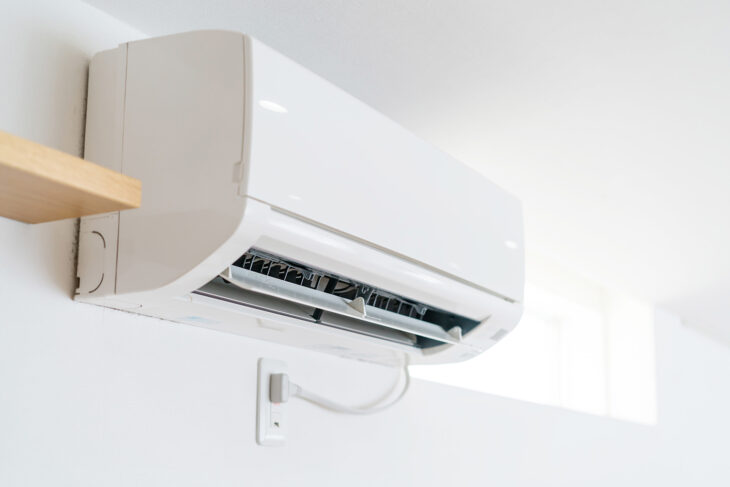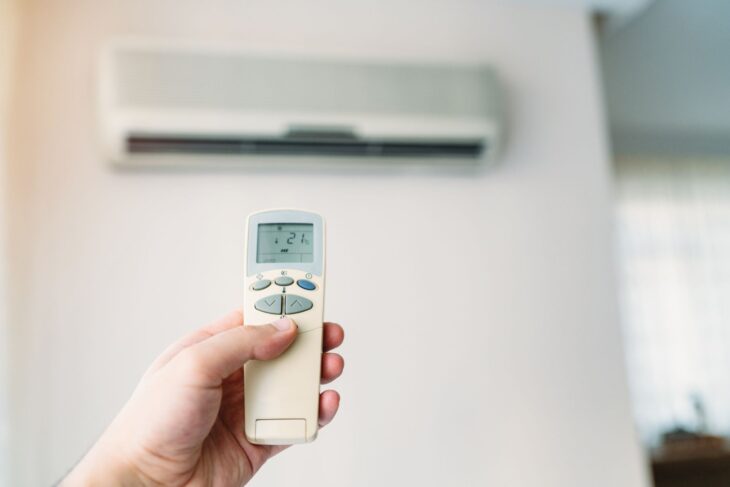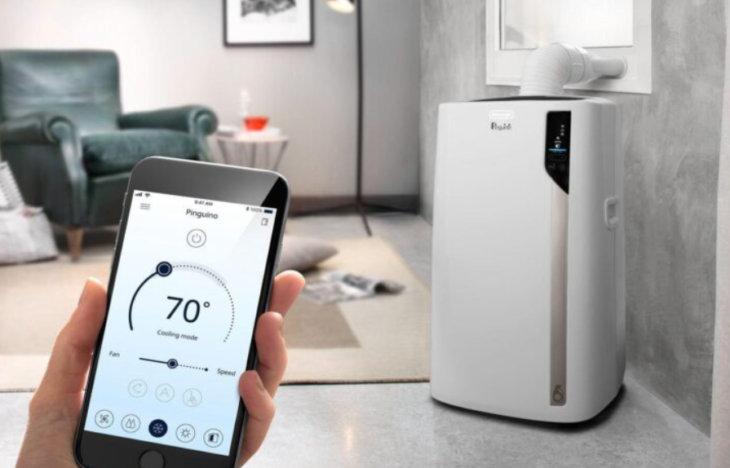Buying an air conditioner is a one-time investment and expected to last for years. It is a luxury item, and though it does not cost you the earth, it does burn a hole in your pocket once. Therefore, you need to be cautious about which product you are bringing home.
It is by no means a good experience to bring something home that stops cooling in just a few days or starts making abnormal sounds or creating problems like that. If you register complain, you come to know that the after-sale services are as good as the product. You may also get confused about who it is that provides after-sale services: a retailer or the manufacturer or some third party.
Even if the after-sale services are not bad, you will soon come to know that the problem your device is creating is either a manufacturing defect or a design defect. Of course, you may seek a replacement within a stipulated time. But it renders the overall experience as a consumer to be absolutely exasperating. And suppose if the product starts bothering you after the time has expired within which you can seek a replacement? Whether you purchase it from some e-commerce portal or a retailer, you stand this risk.
To avoid all this from happening, it is good you spend some of your valuable time doing research before deciding which product you are going to buy. This buying guide for finding the best air conditioner is intended to ease the burden of research work. It is the result of the hard work of our experts having a considerable professional experience that touches both the technological side and the market analysis & research.
Contents
The purpose for which You Need Air Conditioner

Source: urdesignmag
The air conditioners are designed for cooling
- Residential spaces
- Larger official spaces in commercial buildings &
- Industrial spaces
The purpose drives the choice of the capacity of the air conditioner, which is measured in tons. The tonnage of any given AC informs you about how much heat it can remove in a day. If your choice of AC is 1 ton, it removes as much heat as can melt 1 ton of ice in a day. Having said that, it must be added that in technical terms, this heat is measured in BTU, that is, in the British thermal unit.
As you can see, domestic spaces don’t require heavy-duty conditioners. You need something having the capacity up to 5 tons.
And for the official/industrial spaces, their required tonnage could range up to 15.
Types of Air Conditioner

Source: thespruce
1. Window AC
This type has the evaporator and compressor built into one unit, which is to be installed in the window of a room, which is to be cooled. It disperses the heated air through the air pipe into the outer space.
The downside of this type of AC is that they are known to be noisy. In many parts of the world, it has become an extinct species. But in India, it is still very much in use.
The good thing is that these air conditioners are comparatively cheaper, easy to install, and service.
2. Split AC
This type splits the heat-collecting and heat-dispersing systems, of which the former is installed inside the room, and the latter is installed outside. This type is more sophisticated than a window AC, is noiseless, and features several modes and timers that are not found in window ACs.
These also can cool larger spaces, and even heat them if you go for HVAC.
Another big advantage of split AC is that it could be multi-split AC, connecting up to 5 indoor units to 1 outdoor unit, offering the facility control of each indoor unit individually.
3. Portable AC
This one can move around from one room to another quite comfortably, and it is meant for cooling small spaces. The only concern for you is how you are going to arrange the heat dispersal pipe.
Basic AC Technology – Non-inverter and Inverter AC

Source: conditioning
The two types don’t look any different from each other, but they differ considerably when it comes to how they function.
The very terms non-inverter and inverter refer to the compressor type that is used in their make. The former has a compressor that is the default. It means it cannot be controlled in the way that the inverter compressor is.
The reason a non-inverter compressor cannot be controlled is that the speed of the motor of the non-inverter compressor cannot be controlled. Therefore, the motor of the non-inverter AC runs either at its optimum speed or stops running altogether. Exactly this way of its functioning renders it inefficient from saving cost on energy consumption.
In the inverter compressor, the motor speed is controlled so that it runs at different speeds matching the cooling requirements of a room. This not just makes it energy efficient; the controlled compressor enables the device to adjust to the temperature of your preference by adjusting its processes following the thermostatic perception.
It hardly needs saying how vital is the function of a motor in a compressor. When it runs, it moves a piston up and down. The motion of the piston both sucks the gaseous refrigerant into the cylinder through the intake valve and pushes it into the condenser through the exhaust valve.
When it helps the refrigerant into the compressor, it is where the temperature of the coolant is raised to turn it into hot gas, which is then transferred to the condenser. The whole process cannot occur without being assisted by a motor.
The condenser is where the heat exchange occurs, and refrigerant turns into a liquid, and the compressor pushes the coolant forward. The air it cools is blown into the rooms while the heat that is released at the time of its turning into liquid is blown away into the outside air through the outdoor unit.
Based on the methods and devices used for moving the refrigerant through different sections of the air conditioning system, the compressors can be divided into five different categories:
- Reciprocating
- Rotary
- Centrifugal
- Screw & Scroll
It is beyond the scope of this buying guide to deal with all these in detail. It is enough for you as a consumer to know that either you need a non-inverter or inverter AC. For your kind information, most of the part, the reciprocating compressor is used in the inverter air conditioner. The centrifugal compressor is used in designing AC when it is meant for cooling larger spaces.
Heat Exchanger
It consists of two components; one is called the evaporator, and another is the condenser. The former is part of the indoor unit. It receives low-pressure and low-temperature liquid refrigerant and turns it into a dry gas.
The whole process is reversed in the condenser, which receives high-pressure gas and turns it into a liquid through heat transfer technology. In the process of the gaseous refrigerant condensed into liquid form, it sheds its heat. You experience this heat if you stand before the fan of the outdoor unit, which holds the compressor. And the refrigerant that gets cold transfers its cool through thermal contact with the room’s inner space to cool it down.

Source: tipsmake
Tech Specs
Having talked about how air conditioners function, it’s time to turn to the more practical aspects of it. These you find in the technical specifications of the AC.
There is a wide range of air conditioners available in the market. You can decide which one to buy based on certain technical specifications, making it unique in its respective category. Its uniqueness may lie in its versatility or functionality or efficiency or sophistication.
Here are some of the technical details which are useful if you seek after while searching for the best AC for yourself:
- HVAC helps you both in the hot and the cold seasons, serving as an air conditioner during summer and heater during winter
- Dual inverter AC that continually adjusts the compressor’s functioning to the temperature that you have set. It is a no-noise-making device that cools faster. It is also more durable
- A dehumidifying technology that effectively controls the level of humidity during monsoon and also controls air circulation
- A technology that safeguards the heat exchanger surface from corrosion, thereby making it durable
- Energy efficiency rating that is above 3 stars. Any AC that comes with a minimum 3 star is right from the point of view of energy efficiency
- Use of R32 and R410A as a refrigerant. R32 is the better option of the two
- An air purification system
- Automatic filter cleaning that directly affects the efficiency of thermostat functioning
- Wi-Fi connectivity: This is the feature that makes AC smart; because it enables you to control your air conditioner from any location through an application that connects it to your smartphone
As it is, technology has never been static. It is constantly developing and changing, and some exhilarating innovations are coming up very soon. By the time we see them incorporated in the AC design, there is enough available in the market for the present generation of buyers.
Best Brands of AC in India
Certain brands are manufacturing ACs in India, which are extremely popular among consumers. Their name and fame rest on the innovations they have introduced in different elements of the air conditioners.
For instance, Voltas ACs are famous for faster cooling due to the 100% pure copper that is used in its making. As we know, copper is best at heat exchange operation.
Daikin is known for its best air purification system. LG’s dual inverter compressor makes its devices most energy-efficient. Hitachi ACs start at high RPM, which cools the interiors faster, and its stabilizer-free operation range is by far the best in the industry.
The point is, it is always advisable to go for the brands that have already established their monopoly in different segments of this competitive market. It leaves little room for any regrets after the purchase is made.

Source: nbcnews
Conclusion
Having defined the basic technology of air conditioners and discussed some of the innovations that have taken place in different aspects of this ‘basic’ technology, we have endeavored to put you in a position to judge for yourself what you should search for in the AC that best serves your need.
We have also suggested some of the prestigious brands which are vying for supremacy in this market. If you select a product manufactured by any of these, you are sure to consider it to be best for you. For more information, you can go and visit https://energyconversiondevices.com/best-air-conditioners-India.
